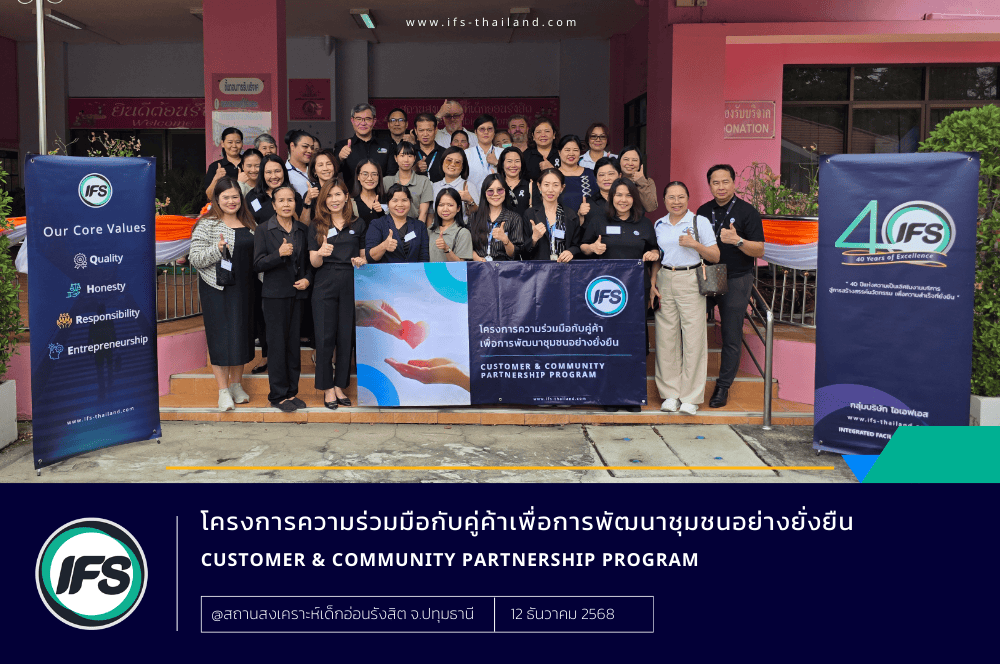The Impact of Minimum Wage Increases in Thailand on Businesses and Strategic Adaptation in the Cleaning Services Industry
Over the past several years, Thailand has implemented a series of minimum wage increases, aimed at improving worker incomes, reducing economic inequality, and stimulating domestic consumption. While these policies bring important social benefits, they also impose significant cost pressures on the business sector – particularly on labor-intensive industries such as cleaning services.
Broad Impacts on the Business Sector
Rising Labor Costs
Labor expenses constitute a major cost component for small and medium-sized enterprises. Automatic adjustments to the minimum wage reduce profit margins, especially when businesses are unable to adjust their pricing in line with rising costs.
Loss of Competitiveness
Organizations that cannot adapt quickly may be forced to reduce their workforce or cut back on service quality, ultimately damaging brand reputation and customer satisfaction.
Broader Economic Consequences
If widespread closures or downsizing occur due to unsustainable labor costs, the ripple effects may negatively impact national employment levels and economic stability.
Specific Impacts on the Cleaning Services Industry
The cleaning services industry is heavily reliant on labor, with wages accounting for more than 60% of total operational costs. Furthermore, clients in this sector are highly price-sensitive, making it difficult for service providers to pass on cost increases. As a result, businesses are often left to choose among three difficult options:
- Raising service fees, which risks losing price-conscious customers
- Reducing staff coverage per area, which compromises service quality
- Absorbing additional costs, a strategy that is unsustainable in the long term
Adaptation Strategies to Mitigate Impact
1. Integrating Technology to Reduce Labor Dependency
Investing in automation, such as robotic vacuum cleaners and smart floor scrubbers, can reduce reliance on human labor while enhancing operational efficiency – especially in large-scale environments like malls, office buildings, and factories.
2. Implementing Digital Management Systems
Using mobile apps, automated scheduling tools, and real-time performance monitoring platforms allows businesses to streamline operations, minimize inefficiencies, and better allocate human resources.
3. Upskilling the Workforce for Versatility
Developing multi-skilled employees who can handle diverse tasks enables businesses to maximize productivity and adapt to changing work demands with fewer staff.
4. Differentiating Through Quality and Reliability
When customers recognize the value of consistent, high-quality service, they are often willing to accept higher service rates. This strategy helps sustain revenue even as operational costs increase.
While increases in minimum wage are driven by positive socioeconomic goals, businesses must remain agile and develop robust adaptation strategies to sustain operations—especially in labor-intensive sectors like cleaning services. A balanced approach that integrates technology, workforce development, and effective cost planning will be essential to remain competitive in an evolving economic landscape.
IFS, Thailand’s leading provider of integrated facility services, has adopted cutting-edge technologies to continually improve operational efficiency—from deploying robotic cleaning systems in large facilities to using digital platforms for staff management and real-time quality control. Additionally, the Operations and Service Excellence Team collaborate closely with clients to develop cost-saving solutions that uphold service excellence.
If your organization is exploring ways to reduce operational costs while maintaining high service standards, contact our team at marketing@ifs-thailand.com or visit our website for more information www.ifs-thailand.com.







